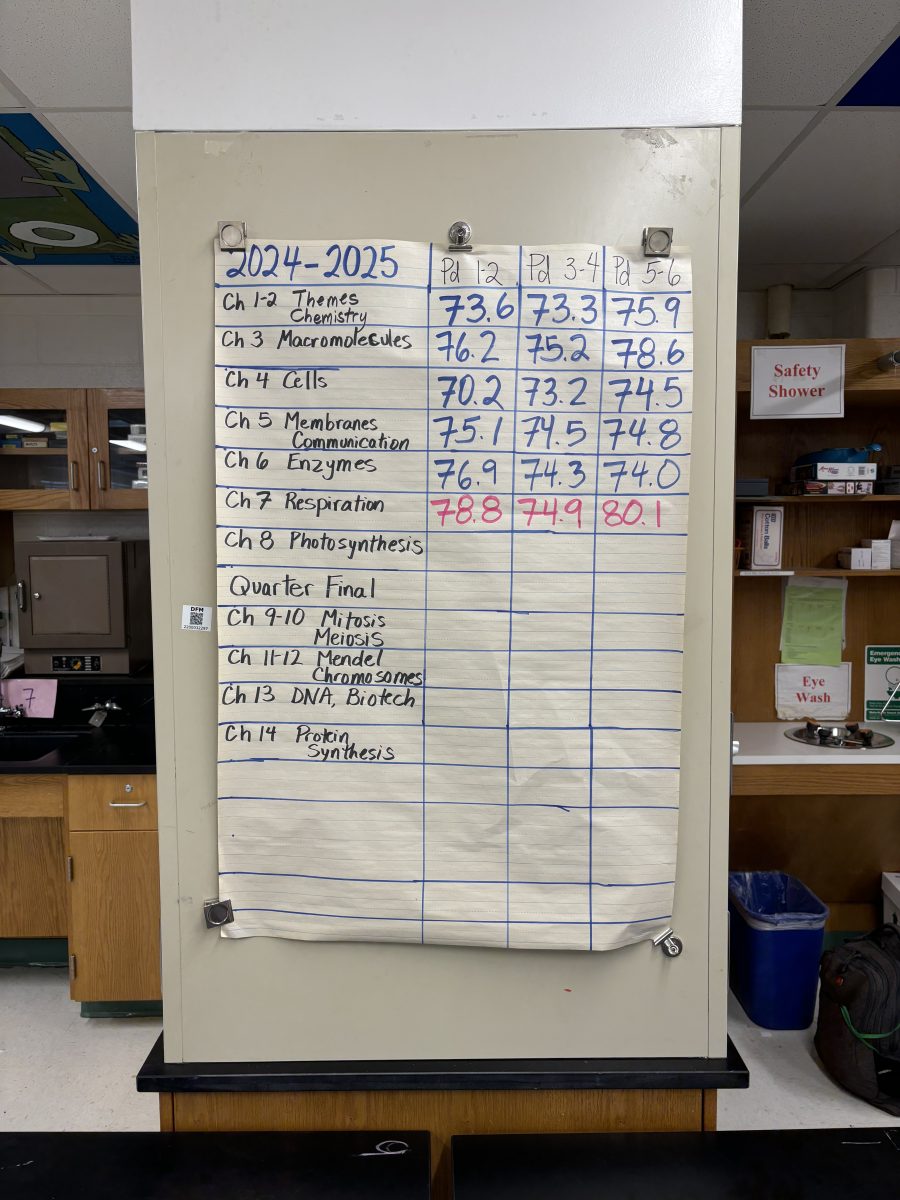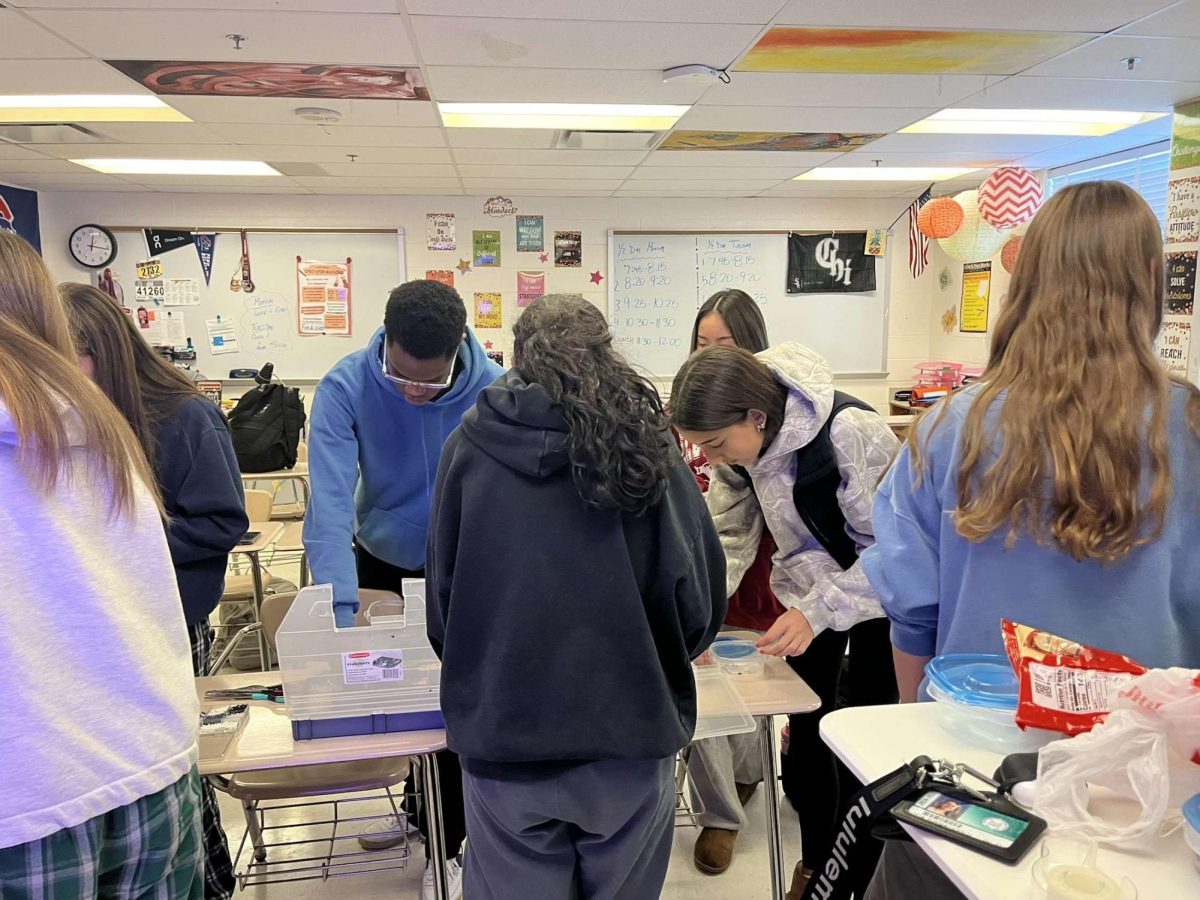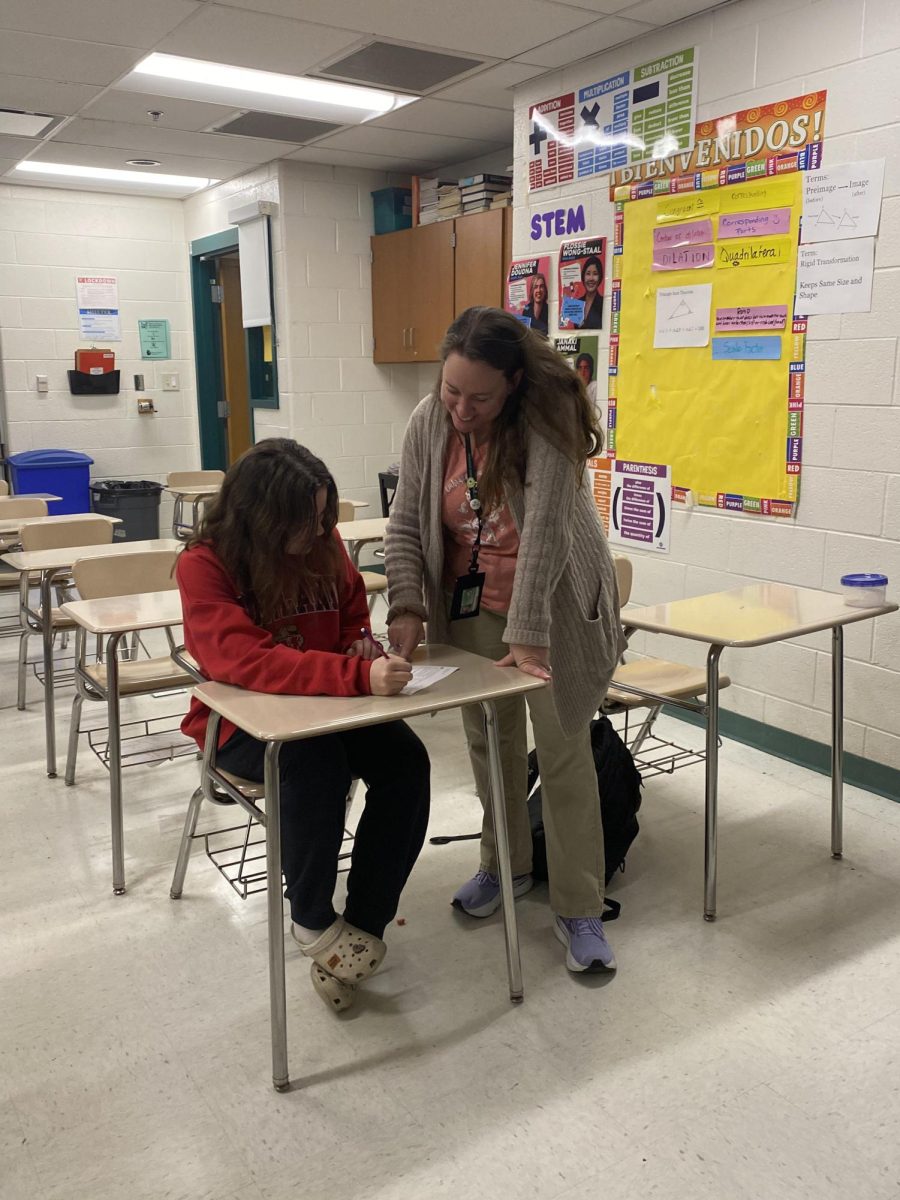
Young kids are using cellphones in school more than ever, either with or without adult permission. Educators often find themselves competing with the electronic beckoning of the latest apps for the attention of students. Some popular apps, such as the well-known PhotoMath, can even solve a student’s homework from a simple photo.
The debate is continually raised whether or not young children should be exposed to electronics such as smart phones and tablets. Early exposure could instill needed technical intuition in an increasingly digital world, but it could also serve as a major distractor in certain aspects of life.
“Pre-schoolers need to have very limited access to technology,” Family and Consumer Science teacher Connie Pokress said. “ [Children] are going to get [technology] anyway.”
Psychology Today reports that overexposure to online devices, such as iPads and smartphones, can lead to attention deficit disorders in young children. These adverse effects in early development could have detrimental impacts on high school students in the classroom. Some teens become consumed by the digital world and experience a disillusionment of personal interactions. According to a study provided by OpenMarket Incorporated, 75% of millennials prefer texting over talking.
“Somewhere along the lines, hopefully a teenager would get interested in active life,” Pokress said.
Schools are often expected to utilize technology to make education more engaging for the students and more applicable for everyday life. Excluding the media center and numerous computer labs, most classrooms come equipped with Google Chromebook laptop devices. This year, the history department went as far as purchasing numerous virtual reality helmets for educational use. While some teachers may even allow students to research articles and finish worksheets via the internet on a daily basis, many teachers still opt for the traditional approach of pen and paper.
“I find it is a balance,” social studies teacher and SGA sponsor Molly Carlin said. “It is an important component because we live in a digital world.”
Some students argue that an accessible camera can allow for faster, more complete note taking, while spell-checking and search engines can yield a more accomplished piece of writing. After all, nearly every adult occupation allows the use of such accommodations.
However, when students are given access to the unrestricted information provided by the internet, many students get lost attempting to obtain their research. Teachers often need to utilize tools, such as ProQuest, to ensure that students use reliable, concise sources in essays and research projects.
Students are often too reliant on electronics. “Even writing things,” Carlin said, “students often do better handwriting.”






